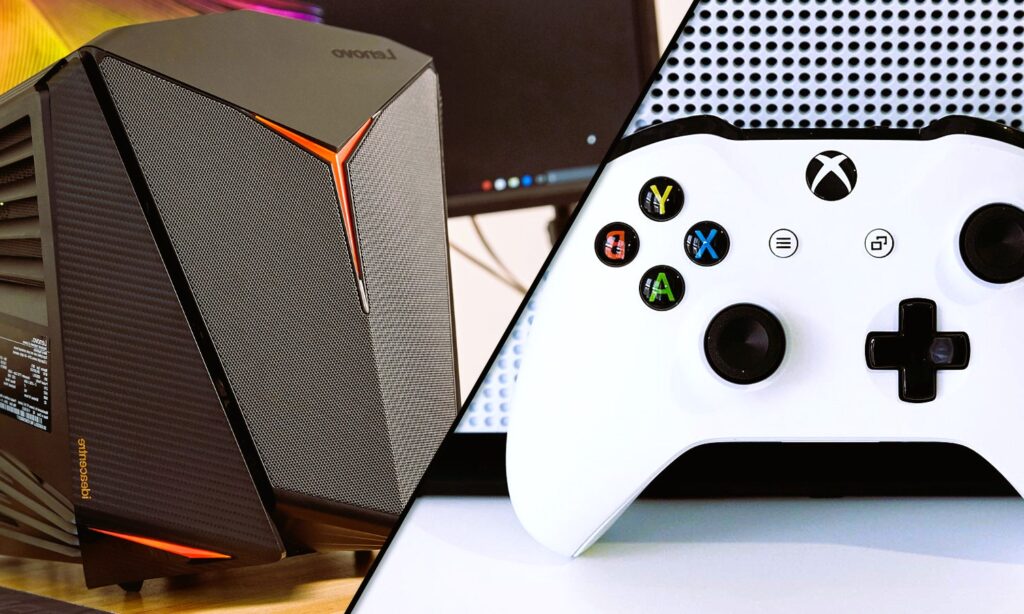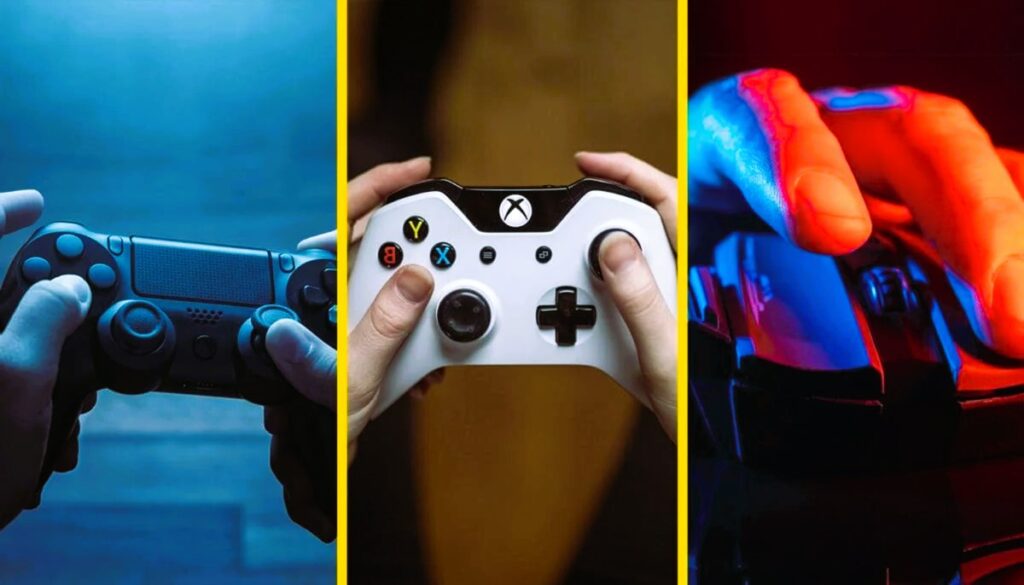In the world of gaming, two major platforms dominate the landscape: Personal Computers (PCs) and Consoles. Each has its own unique strengths and weaknesses, and the choice between the two often comes down to personal preference, gaming habits, and budget. This article aims to provide a comprehensive comparison between PCs and consoles, examining key factors such as performance, cost, game library, and user experience.
Performance
PCs are renowned for their superior performance capabilities. With customizable hardware, gamers can build or purchase a PC with cutting-edge components, including high-end graphics cards, fast processors, and ample RAM. This flexibility allows for a gaming experience that can be tailored to meet or exceed the latest gaming requirements. PCs can often handle higher resolutions, better frame rates, and more complex graphical settings compared to consoles.
On the other hand, consoles like the PlayStation 5 and Xbox Series X are optimized for gaming out of the box. These systems are built with specific hardware configurations that are finely tuned to ensure smooth performance for the games available on their platforms. While consoles may not match the absolute performance of high-end PCs, they offer a consistent and reliable gaming experience without the need for constant upgrades.
Cost

Cost is a significant factor in the decision between PC and console gaming. Gaming PCs can be expensive, especially if you are aiming for high-end specifications. Building or buying a gaming PC often involves additional costs for peripherals such as monitors, keyboards, and mice. Additionally, regular upgrades to components like the GPU or CPU can add to the long-term cost of PC gaming.
Consoles, in contrast, typically have a lower initial cost. The upfront price of a console is generally less than that of a high-performance gaming PC. Consoles come with everything you need to start gaming, including a controller and sometimes a bundled game. However, there are ongoing costs associated with consoles, such as subscription fees for online services and the purchase of additional games.
Game Library
Both platforms boast a rich selection of games, but there are notable differences in their libraries. PCs have access to a vast array of games across multiple digital distribution platforms like Steam, Epic Games Store, and GOG. This diversity includes everything from indie gems to major blockbusters, as well as a wealth of mods and user-generated content that can enhance or alter games. Did you like the article? Read also about Gaming Trends 2024.
Consoles often have exclusive titles that are not available on PC. Major franchises such as “God of War” on PlayStation or “Halo” on Xbox are examples of console exclusives that can influence a gamer’s choice of platform. Additionally, consoles typically offer a more streamlined experience for playing AAA titles that are optimized for their specific hardware.
User Experience
The user experience can vary greatly between PCs and consoles. PCs offer a highly customizable experience. Gamers can adjust settings to their liking, including resolution, graphics quality, and controls. However, this flexibility can also lead to more complex setup processes and potential technical issues, requiring users to have a certain level of technical know-how.
Consoles provide a more straightforward and user-friendly experience. The plug-and-play nature of consoles makes them accessible to a wider audience, and the user interface is designed to be intuitive and easy to navigate. Consoles also offer seamless integration with online services and digital storefronts, simplifying the process of downloading and playing games.
Community and Online Services
PC gaming communities are diverse and expansive. Platforms like Steam and Discord provide extensive social features, including friends lists, chat functions, and community forums. PC gamers can participate in a wide range of online multiplayer experiences and modding communities, adding a unique layer to their gaming experience.

Consoles also offer robust online services. PlayStation Network and Xbox Live are examples of services that provide multiplayer gaming, digital downloads, and exclusive content. These networks often feature social features, such as friends lists and messaging, though they may not offer the same level of customization as PC platforms.
Conclusion
The choice between a gaming PC and a console ultimately depends on individual preferences and priorities. PCs offer unparalleled performance and customization options but come with higher costs and complexity. Consoles provide a more accessible and straightforward gaming experience at a lower initial cost, with the added benefit of exclusive games.
For a more detailed look into the evolution and standardization of gaming platforms, you can visit the Wikipedia page on Video Game Consoles for additional context and historical perspective.
Both platforms have their own merits, and gamers should consider what factors are most important to them—whether it’s performance, cost, game selection, or user experience—when making their decision.

